In this lesson, students practice a way to communicate without words by using a glyph. They create a name card using information about themselves. Students also interpret glyphs made by others.
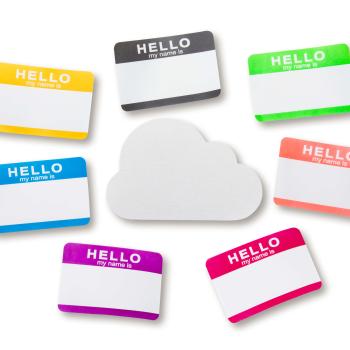
Name Tag Glyphs
Grades
|
Book Report Alternative: Glog That Book!
5 - 8
Lesson Plan
| Standard Lesson
In this alternative book report, students identify the elements of fiction in books they have read by creating glogs, interactive multimedia posters, and then share their glogs.

Grades
|
Not Your Usual History Lesson: Writing Historical Markers
6 - 8
Lesson Plan
| Standard Lesson
Students will develop their summarizing skills while learning about local history. They will learn to consider audience while selecting topics, conducting research and interviews, and writing historical markers for their town.
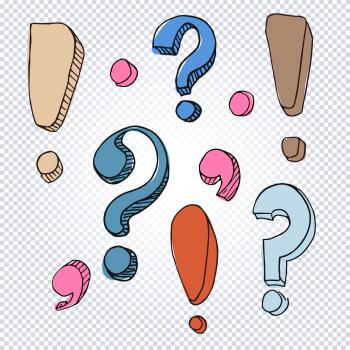
Grades
|
The Passion of Punctuation
9 - 12
Lesson Plan
| Unit
Using published writers' texts and students' own writing, this unit explores emotions that are associated with the artful and deliberate use of commas, semicolons, colons, and exclamation points (end-stop marks of punctuation).
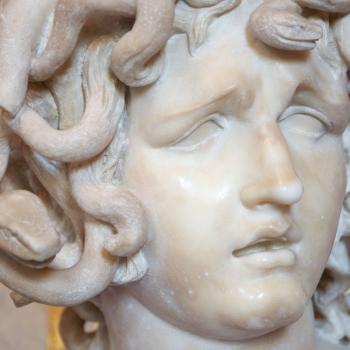
Grades
|
Digitally Telling the Story of Greek Figures
5 - 8
Lesson Plan
| Standard Lesson
In this lesson students research Greek gods, heroes, and creatures and then share their findings through digital storytelling.

Grades
|
Responding to Tragedy: Then and Now
8 - 12
Lesson Plan
| Standard Lesson
After reading several poets' personal responses to the September 11th terrorist attacks, students write a "then and now" poem that puts their early memories of the event in conversation with their current understanding of and response to the tragedy.

Grades
|
Seeing Multiple Perspectives: An Introductory Critical Literacy Lesson
1 - 3
Lesson Plan
| Minilesson
Students consider the perspectives of central but silent characters in Stevie (Steptoe, 1968), gaining much deeper understandings of the story and realizing that every story truly gives a partial account.

Grades
|
Demonstrating Understanding of Richard Wright's Rite of Passage
9 - 12
Lesson Plan
| Standard Lesson
Students use the elements of persuasion for a specific audience to demonstrate their understanding of Richard Wright's accessible and engaging coming-of-age novel, Rite of Passage.

Grades
|
Introducing Basic Media Literacy Education Skills with Greeting Cards
5 - 6
Lesson Plan
| Standard Lesson
In this lesson, students examine and create holiday/event cards, analyze holiday elements, and create their own. The activities help students focus on the reasons for composing messages as they do.

Grades
|
Professional Writing in Action! Publishing Student Reviews Online
11 - 12
Lesson Plan
| Standard Lesson
Writing professional reviews teaches students to understand audience, content, and publication guidelines. In this lesson, students put these into practice as professional writers critiquing, designing, and publishing reviews on Amazon.com.

Grades
|
Authoring an Epilogue That Helps Our Characters Live On
3 - 5
Lesson Plan
| Standard Lesson
This lesson uses One Green Apple by Eve Bunting to teach how characters change across a text. It will also guide students through writing an epilogue to accompany their independent book.
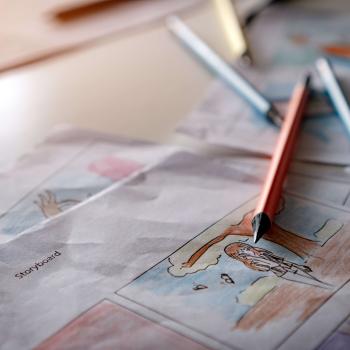
Grades
|
Storyboarding the Transformation from Dr. Jekyll into Mr. Hyde
9 - 12
Lesson Plan
| Standard Lesson
Students imagine and storyboard their own vision of the transformation of Dr. Jekyll into Mr. Hyde and then evaluate movie portrayals.

Grades
|
Developing Persuasive Arguments through Ethical Inquiry: Two Prewriting Strategies
9 - 12
Lesson Plan
| Standard Lesson
In this lesson, students use focused prewriting strategies to explore content and ethical issues related to a persuasive assignment.

Grades
|
What's the Purpose?: Examining a Cold Manipulation of Language
11 - 12
Lesson Plan
| Standard Lesson
With a crafty pen, Truman Capote wrote In Cold Blood to create a new genre and shock his audience. This lesson will help students examine Capote's manipulation of language as he forces his audience to take a different look at murderers and consider a different definition of nonfiction. His unique purpose leaves students an interesting text to consider.

Grades
|
Designing Elements of Story in Little Blue and Little Yellow
K - 5
Lesson Plan
| Standard Lesson
In this series of four lessons, students will explore key elements of design in Little Blue and
Little Yellow to learn about setting, character relationships, and plot.
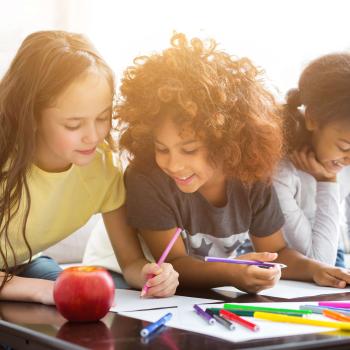
Grades
|
Literature Response in Primary Classrooms
K - 2
Lesson Plan
| Recurring Lesson
This step-by-step literature response template for use with read-alouds asks students to use drawing and writing to respond to increasingly-complex prompts which address literary elements as well as personal connections.

Grades
|
Audience & Purpose: Evaluating Disney's Changes to the Hercules Myth
5 - 8
Lesson Plan
| Standard Lesson
What drives changes to classic myths and fables? In this lesson students evaluate the changes Disney made to the myth of "Hercules" in order to achieve their audience and purpose.
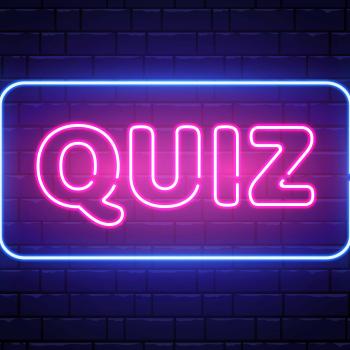
Grades
|
Active Reading through Self-Assessment: The Student-Made Quiz
6 - 12
Lesson Plan
| Recurring Lesson
This recurring lesson encourages students to comprehend their reading through inquiry and collaboration. They choose important quotations from the text and work in groups to formulate "quiz" questions that their peers will answer.

Grades
|
Exploring the Power of Language with Six-Word Memoirs
9 - 12
Lesson Plan
| Standard Lesson
What do the words we write really have to say about us? In this lesson, students examine the power of word choice as they write six-word memoirs of their lives.

Grades
|
Sí, Se Puede: Making a Difference, One Letter at a Time
6 - 8
Lesson Plan
| Standard Lesson
After reading the book ¡Si, Se Puede!/Yes, We Can!: Janitor Strike in L.A., students learn about labor unions, strikes, and organizing for change. Students interview staff members in their school to learn about their daily work life, and write persuasive advocacy letters.